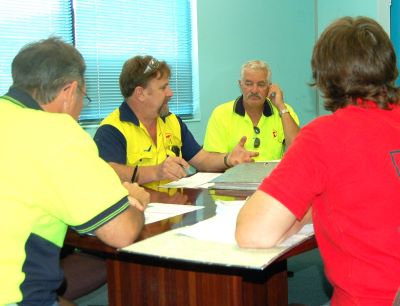WHS consultation

Experienced machinery operators and production workers generally have a very good idea of where the hazards are in their own work area.
They’re also likely to feel a lot more inclined to put new work methods into practice if they’ve had a hand in developing them.
This is why consultation between management and the employees is essential for any WHS system to work properly. It’s also a requirement under the law.
PCBUs are required to consult with their workers whenever:
issues arise that have WHS implications for workers
risk assessments are undertaken
new measures are put in place to control risks
new work or safety procedures are introduced
decisions are made about the facilities provided for the welfare of workers
changes to the workplace, plant or systems of work occur which may affect safety and welfare.
Methods for consulting with workers

Depending on the size of the workplace, there are various ways a company can consult with its workers and meet the requirements of the legislation.
Larger organisations generally have a safety committee that meets regularly and has members representing the employer and employees.
The purpose of the meetings is to discuss safety issues and review safety systems. Formal minutes are taken at each meeting, and particular members are given duties to carry out in the workplace, which need to be reported back to the committee when completed.
Companies with large groups of employees also conduct regular toolbox talks with the workers. These are generally organised by the supervisor in each section of the workplace, and formal minutes are taken of the issues discussed and decisions made.
A toolbox talk allows employees to raise safety concerns or report hazards. It also lets the supervisor pass on WHS information, or discuss new work practices or procedures that are being introduced.
Regardless of the size of the workforce, all businesses are required to have arrangements in place that allow the free flow of information between the employer and employees. In the case of a small business, this may simply involve workers speaking directly to their boss.
But whatever the arrangements are, documentary records must be kept to show that consultation is occurring properly, and that employees’ views are being considered when management makes decisions about WHS matters.